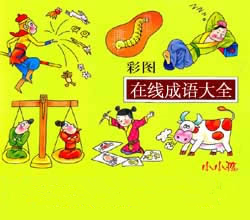英文读后感之简爱读后感
Jane Eyre — A Beautiful Soul
Jane Eyre, is a poor but aspiring, small in body but huge in soul, obscure but self-respecting girl. After we close the covers of the book, after having a long journey of the spirit, Jane Eyre, a marvelous figure, has left us so much to recall and to think:
We remember her goodness: for someone who lost arms and blinded in eyes, for someone who despised her for her ordinariness, and even for someone who had hurt her deeply in the past.
We remember her pursuit of justice. It’s like a companion with the goodness. But still, a virtuous person should promote the goodness on one side and must check the badness on the other side.
We remember her self-respect and the clear situation on equality. In her opinion, everyone is the same at the God’s feet. Though there are differences in status、in property and also in appearance, but all the human being are equal in personality.
We also remember her striving for life, her toughness and her confidence…
When we think of this girl, what she gave us was not a pretty face or a transcendent temperament that make us admire deeply, but a huge charm of her personality.
Actually, she wasn’t pretty, and of course, the ordinary appearance didn’t make others feel good of her, even her own aunt felt disgusted with it. And some others even thought that she was easy to look down on and to tease, so when Miss Ingram met Jane Eyre, she seemed quite contemptuous, for that she was obviously much more prettier than ‘the plain and ugly governess’. But as the little governess had said: ‘Do you think, because I am poor, obscure, plain, and little, I am soulless and heartless? You think wrong!’ This is the idea of equality in Jane Eyre’s mind. God hadn’t given her beauty and wealth, but instead, God gave her a kind mind and a thinking brain. Her idea of equality and self-respect impress us so much and let us feel the power inside her body.
In my mind, though a person’s beauty on the face can make others once feel that one is attractive and charming, if his or her mind isn’t the same beautiful as the appearance, such as beauty cannot last for, when others find that the beauty which had charmed them was only a falsity, it’s not true, they will like the person no more. For a long time, only a person’s GREat virtue, a noble soul, a beautiful heart can be called as AN EVERLASTING BEAUTY, just as Kahill Gibran has said, that ‘Beauty is a heart enflamed and a soul enchanted’. I can feel that how beauty really is, as we are all fleshly men, so we can’t distinguish whether a man is of nobleness or humbleness, but fleshly men, so we can’t distinguish whether a man is of nobleness or humbleness, but as there are great differences in our souls, and from that, we can know that whether a man is noble or ordinary, and even obscure, that is, whether he is beautiful or not.
共2页,当前第1页1 相关作文: 小狗的故事、滑滑板、我真了不起、快乐的一天100字、橡皮擦、我爱看《动物世界》、菜园里、我的新牙、第一次放鞭炮、滑滑轮热门作文成语素材
- 哀感顽艳 原意是指内容凄切,文辞华丽,使愚笨和聪慧的人同样受感动。后多用来指艳情的小说、戏曲、电影中的感人情节。
- 匪夷所思 匪:不是;夷:平常。指言谈行动离奇古怪,不是一般人根据常情所能想象的。
- 分我杯羹 羹:肉汁。楚、汉相争时,刘邦答项羽的话。比喻从别人那里分享一分利益。
- 风不鸣条 和风轻拂,树枝不发出声响。比喻社会安定。
- 匪夷匪惠 夷:殷末周初的伯夷;惠:春秋时鲁国的柳下惠。既不是伯夷,又不是柳下惠;不具备这两位贤人的品德。形容才德不高而又驾驭的人。
- 分茅裂土 原指古代帝王分封诸侯时举行的仪式。后称分封诸侯。
- 安分知足 安于本分,对自己所得到的待遇知道满足。
- 飞沙走砾 沙:沙土;砾:小石块。沙土飞扬,小石块滚动。形容风势很猛。
- 诽誉在俗 诽:指诽谤;誉:赞扬;俗:风气、习惯。诽谤或赞扬在于当时的风习。后来引申指风气、习惯的作用非常大。
- 分毫不爽 比喻没有丝毫差错。
- 飞黄腾达 飞黄:传说中神马名;腾达:上升,引伸为发迹,宦途得意。形容骏马奔腾飞驰。比喻骤然得志,官职升得很快。
- 兵无常势 常:不变;势:形势。用兵无一成不变的形势。用以说明办事要因时、因地制宜,具体问题要用具体办法去解决。
- 不安其室 指已婚妇女又乱搞男女关系。
- 不痴不聋 人不傻,耳朵也不聋。常与“不成姑公”连用,意为不故作痴呆,不装聋作哑,就不能当阿婆阿公。形容长辈要宽宏大量。
- 不耻下问 乐于向学问或地位比自己低的人学习,而不觉得不好意思。
